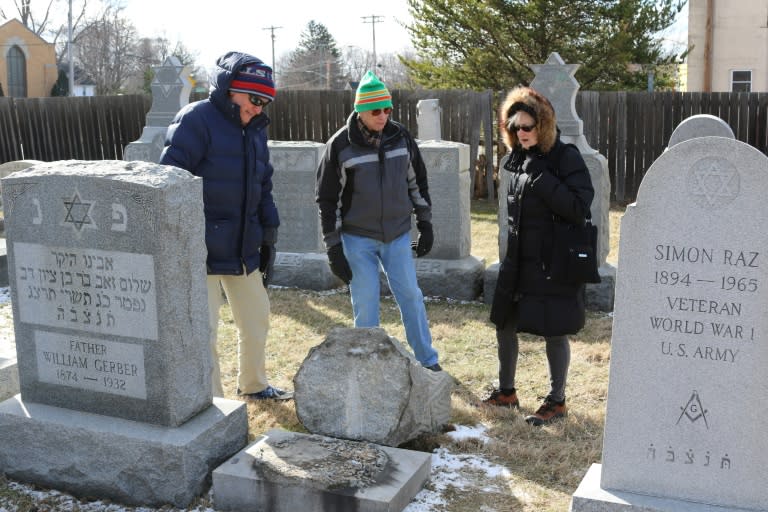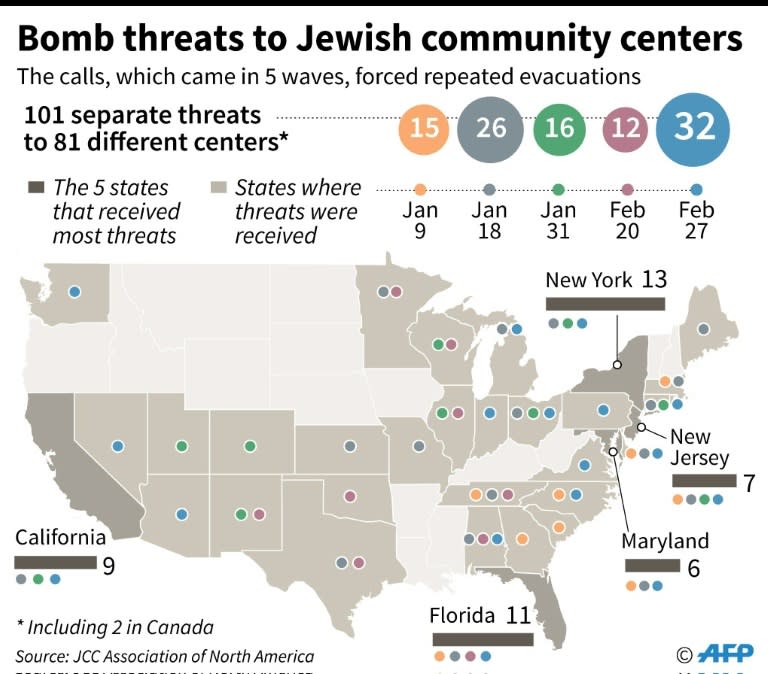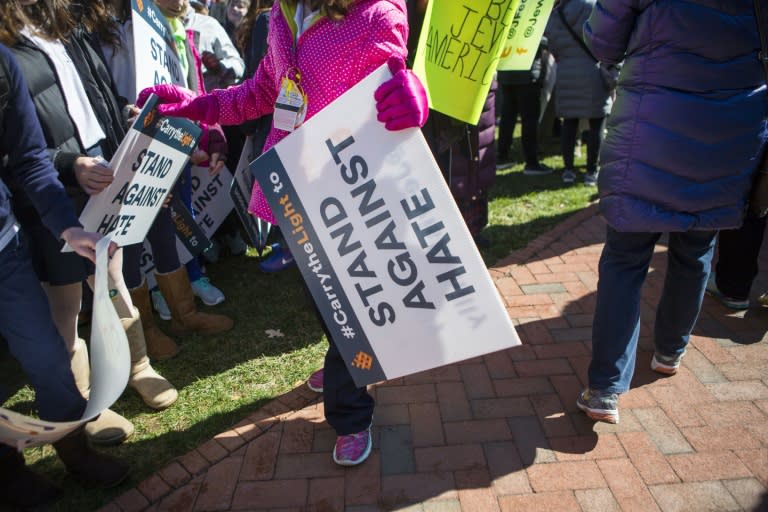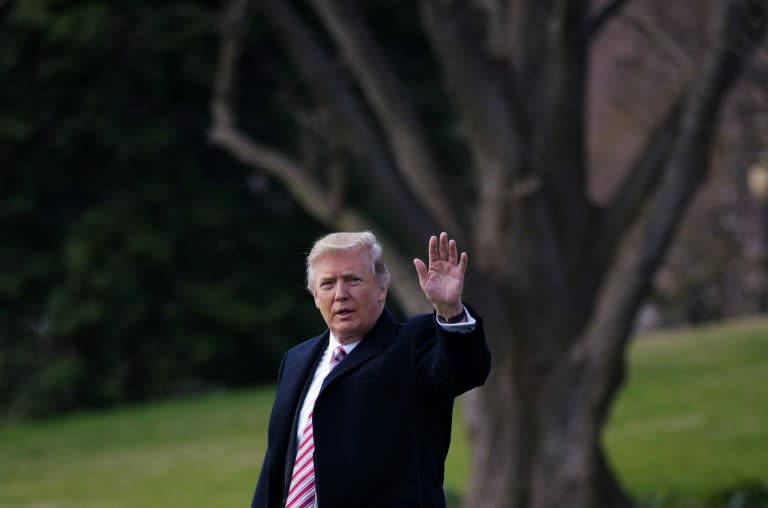Threats against US Jewish groups stoke fears of rising anti-Semitism
More than 100 bomb threats against US Jewish organizations and the desecration of three Jewish cemeteries are stoking fears of a rise of anti-Semitism, with some analysts blaming the politics of the Trump era. On Friday, the Federal Bureau of Investigation arrested former journalist Juan Thompson over a handful of the bomb threats, saying he made them to frame an ex-girlfriend in what they called a revenge case rather than a hate crime. But that left unsolved more than 100 other threats made since the beginning of the year, some of which forced the evacuation of Jewish community centers (JCC) and schools. The Anti-Defamation League has tabulated a total of 121 threats reported since January 1, labelling them an "epidemic." Unlike Thompson's emailed threats, the majority were made by a person or people by telephone using voice-masking, automated calling and spoofing technologies to hide their identity and location. All proved to be hoaxes and no one has been injured. But on February 16, police in South Carolina arrested a man allegedly tied to white supremacist groups for allegedly planning to attack a synagogue. Law enforcement authorities are meanwhile investigating attacks on Jewish cemeteries in three cities which saw hundreds of gravestones tumbled and broken. The latest took place in Rochester, New York late Wednesday. "Just because there's been an arrest today doesn't mean that threats have disappear or will stop," Evan Bernstein, New York regional director for the Anti-Defamation League -- also a target of the bomb threats -- told a press conference Friday. "There are many more JCC bomb threats that have not been solved... and we hope all law enforcement will continue to be diligent." - 'Normalization' of anti-Semitism? - Mark Potok of the Southern Poverty Law Center in Montgomery, Alabama, which tracks racist and hate groups, said it is too early to say whether there is a real upsurge in anti-Semitic activity in the United States. According to the ADL, there were more than 900 anti-Jewish incidents reported across the country in 2015. But Potok says that the rise of Donald Trump to the White House has encouraged extreme right, neo-Nazi groups and boosted the confidence of activists with racist agendas. A number of Trump advisors, particularly his chief strategist Steve Bannon, have had links to right-wing groups. Bannon was previously head of Breitbart, which has been accused of being a focal point for the so-called "alt-right" -- an amorphous movement that comprises white nationalists, racists, anti-Semites, and anti-immigrant Americans who in large part fell in line behind the Trump campaign. "Anti-Semitism is pervasive in the American radical right," Potok said. "People feel the Trump campaign has brought their ideas into the mainstream.... This surge of anti-Semitic incidents reflects the normalization of these ideas." He said the same force is behind the alleged torching of four Muslim mosques across the United States since the beginning of the year. - Cyberstalking case - Investigations into the bomb threats have involved the Justice Department's anti-terror and hate crimes units. However, Thompson's case did not appear inspired by anti-Semitism or involve any racist group. The 31-year-old African American, arrested Friday morning in St Louis, was blamed for eight emailed threats to Jewish organizations that were meant to implicate his former, white girlfriend. The ADL said it had been monitoring Thompson's online activities, which it said had been strongly critical of white people. He was charged with just one count of cyberstalking, which carries a maximum sentence of five years in prison. - Trump's role? - The Jewish community has been nonplussed by the lack of a consistent and categoric denunciation of anti-Semitic acts from Trump. Kenneth Stern, head of the Justus and Karin Rosenberg Foundation, which combats anti-Semitism, said the surge of anti-Semitic acts takes place in a "larger environment of xenophobia and racism engendered by Trump's political rise. "The white supremacists felt empowered during and after the election," he said. "What's different here is that, in the last few decades, you would have political leaders that reflexively, without prompting, react and condemn this." On Tuesday, Trump did condemn the threats and vandalism in a speech before Congress. Such acts "remind us that while we may be a nation divided on policies, we are a country that stands united in condemning hate and evil in all its forms," he said. But earlier that day, according to Pennsylvania Attorney General Josh Shapiro, Trump told a group of state prosecutors that some of the threats could be "the reverse," implying they were not real anti-Jewish acts, but fake threats aimed at making others look bad politically. Shapiro told NPR radio Thursday that such mixed messages from the president "stokes doubt" in the public about what is going on. "I don't know what the president meant," he said. "But here's what I know, is that presidents must speak with moral clarity, not through mixed messages.... And this kind of wishy-washy speech leaves too much open to interpretation by the wrong people."






